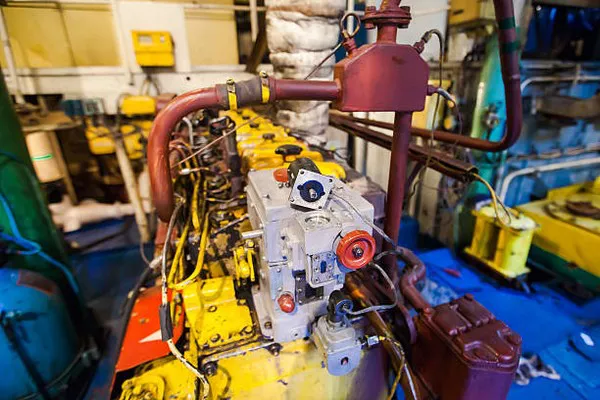The question of how long you can run an RV generator is central to the experiences of many recreational vehicle (RV) enthusiasts. Understanding the operational limits of your RV generator is crucial for a variety of reasons, ranging from the need to ensure continuous power supply during boondocking trips to maintaining the longevity and efficiency of the generator itself. This article delves into the factors influencing the runtime of RV generators, the typical durations one can expect, and tips for optimizing performance.
Types of RV Generators
RV generators come in different types, each with unique characteristics that affect how long they can run:
Gasoline Generators: Commonly used due to their compatibility with many RVs that also run on gasoline. Their runtime is generally limited by the capacity of the fuel tank and fuel consumption rate.
Diesel Generators: Typically more efficient than gasoline generators and are often integrated into diesel-powered RVs. They can run longer on the same amount of fuel compared to gasoline generators.
Propane Generators: Favored for their cleaner burn and longer shelf life of propane. They tend to have a shorter runtime than diesel generators but can run longer than gasoline generators, especially when connected to large onboard propane tanks.
Solar Generators: Increasingly popular due to their renewable energy source. However, their runtime is highly dependent on sunlight availability and the capacity of the battery storage system.
Factors Affecting Generator Runtime
Several variables influence how long an RV generator can run:
Fuel Capacity: The size of the fuel tank directly impacts the maximum runtime. Larger tanks enable longer periods of operation without refueling.
Fuel Efficiency: Different generators have varying levels of fuel efficiency. Diesel generators are generally more fuel-efficient than gasoline generators, meaning they can run longer on the same amount of fuel.
Load: The electrical load or the amount of power being drawn affects fuel consumption. Running high-demand appliances like air conditioners, microwaves, and heaters will reduce the generator’s runtime.
Maintenance: Well-maintained generators perform better and more efficiently. Regular oil changes, air filter replacements, and fuel system cleanings can extend the runtime by ensuring the generator operates at peak efficiency.
Environmental Conditions: External factors such as temperature, altitude, and humidity can affect generator performance. For instance, higher altitudes can reduce engine power output, increasing fuel consumption and reducing runtime.
Typical Runtime Expectations
Understanding the expected runtime of your RV generator can help in planning trips and ensuring uninterrupted power supply. Here’s a general idea based on generator types and fuel capacities:
Gasoline Generators: With an average fuel consumption rate of about 0.5 to 1 gallon per hour under moderate load, a 10-gallon tank might provide 10 to 20 hours of runtime.
Diesel Generators: These can consume around 0.4 to 0.6 gallons per hour. A 20-gallon tank could offer between 33 and 50 hours of operation under moderate load.
Propane Generators: Propane consumption can vary significantly, but an average rate might be around 1 gallon per hour. A 20-pound propane tank (approximately 4.7 gallons) might last about 4 to 5 hours, whereas larger tanks will proportionally extend this duration.
Solar Generators: Runtime is highly variable and depends on the battery storage capacity and the power draw. On a sunny day, with sufficient battery storage, solar generators can potentially run indefinitely during daylight hours, with stored energy providing power during the night.
Maximizing Generator Runtime
To maximize the runtime of your RV generator, consider the following strategies:
Load Management: Be mindful of the electrical load. Avoid running multiple high-demand appliances simultaneously. Use energy-efficient devices and lighting to reduce overall power consumption.
Regular Maintenance: Perform regular maintenance as per the manufacturer’s recommendations. This includes checking oil levels, replacing air filters, and ensuring the fuel system is clean.
Fuel Management: For gasoline and diesel generators, ensure that the fuel is fresh and the tanks are clean. Stale fuel can reduce efficiency and cause engine problems.
Upgrade Components: Consider upgrading to more fuel-efficient generators or adding additional battery capacity if you’re using a solar generator. Modern inverter generators are more efficient and quieter than traditional generators.
Environmental Adjustments: When possible, operate your generator in conditions that favor better performance. For instance, avoid running the generator in extremely hot conditions without proper ventilation, as this can lead to overheating and reduced efficiency.
Fuel Additives: Use fuel stabilizers and additives to keep the fuel system clean and improve efficiency, especially if the generator is not used frequently.
Safety Considerations
While maximizing runtime is important, safety should never be compromised:
Ventilation: Ensure that your generator has adequate ventilation to prevent carbon monoxide buildup. Never run a generator indoors or in an enclosed space.
Fuel Handling: Handle fuels carefully to avoid spills and leaks. Store fuel in approved containers and away from living spaces.
Load Capacity: Do not overload the generator. Exceeding the rated capacity can cause damage to the generator and connected appliances, and may pose a fire hazard.
Regular Inspections: Periodically inspect the generator for any signs of wear, leaks, or damage. Address any issues immediately to prevent potential failures or accidents.
See Also Can I Use A Generator Instead Of Electricity
Conclusion
The duration for which you can run an RV generator depends on various factors including the type of generator, fuel capacity, load, maintenance, and environmental conditions. By understanding these factors and implementing strategies to optimize performance, RV owners can ensure a reliable power supply during their travels. Whether you’re boondocking in remote locations or simply need a backup power source, managing your generator’s runtime effectively can enhance your RVing experience and provide peace of mind.

